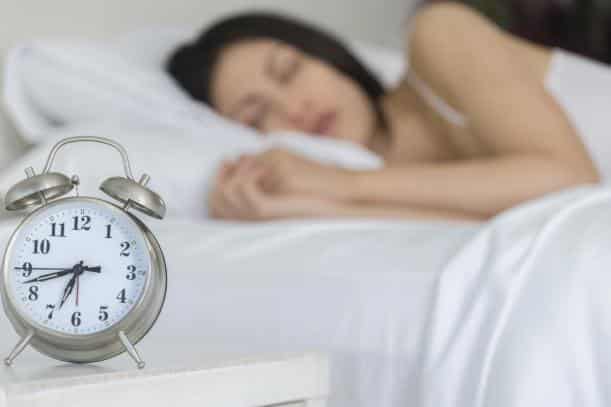Are you sleeping well? If not, you could be suffering from too much stress.
When you are stressed, your body produces chemicals such as cortisol and adrenaline that over a prolonged period can cause symptoms such as sleep problems, depression, digestive problems, headaches, heart disease and weight gain.
Inadequate sleep also triggers the body to produce more cortisol, so it is important to deal with any sleep difficulties you might have if you want to manage stress.
There are commonsensical approaches to sleep difficulties: avoid caffeinated drinks after noon, cut down on alcohol, avoid napping during the day, and try to exercise regularly (but not too close to bedtime).
If you’ve done all that, but sleep still eludes you, try the following tips:
1. Get into a routine
Mayo Clinic recommends establishing a relaxing bedtime routine to prepare one for sleep. This helps to ready your mind and body for sleep.
For some, this includes having a cup of herbal tea, a warm glass of milk, reading a book or having a warm shower. This will help you unwind and make it easier to fall asleep.
2. Beware blue light
Blue light – such as those found on your handphone, tablet, computer and television – interferes with the production of melatonin, a hormone produced by your brain which is crucial to regulating your sleep-wake cycle.
To reduce your exposure to blue light before bedtime, limit your use of such devices after dinner. Another alternative is to download and use blue light filters on your devices.
Short-term supplementation of melatonin has been shown in studies to help induce sleep, but long-term supplementation can cause dependency and is not encouraged.
3. Take a supplement
After 12 years of research, in partnership with Universite Henri Poincare-Nancy in France, a peptide was found with its calm & relaxing properties within a milk protein hydrolysate. The research stemmed from the observation of the calm state of a baby after drinking milk.
PNT200 is a natural supplement derived from organic cow’s milk. Its active compound – a decapeptide called Casozepine – works like benzodiazepines, a type of sleeping pill. However, unlike benzodiazepines which can cause memory loss, dependence and addiction, Casozepine in PNT200 produces a calming effect without adverse effects. It binds to the brain’s GABA-A receptors and reduces the brain’s response to perceived stressors.
PNT200 is clinically proven to be effective, safe for long term use and is free from lactose, fats, steroids, hormones and antibiotics that are commonly found in milk and dairy products, so individuals who are hyper-allergic to specific dairy products can also consume it. The recommended dose for adults is four capsules half an hour before bedtime. Children aged 12 and above can take one to two capsules.
Fung and Goh recommends that individuals that are hyper-allergic to specific dairy products should try 1 capsule of PNT200 for the first couple of days or nights. If there is no negative allergic reaction, the dosage may be increased to 4 capsules a night & 2 capsules for day-time consumption.
For better quality sleep, Fung and Goh also recommends that the supplement should be taken half an hour before bedtime. Adults should take 4-6 capsules for 15 days and 4 capsules nightly after that whenever necessary. Children and teenagers can take 1-2 capsules whenever necessary. For individuals who suffer from anxiety or high-stress during the day, they can take 2 caps of PNT200 to calm nerves & relieve stress.
4. Harness the power of scent
Aromatherapy has long been used as a stress reliever. Studies have shown that using essential oils such as lavender can improve sleep quality and promote relaxation.
Besides the ubiquitous lavender, you can try other essential oils such as marjoram, ylang ylang and geranium to relax. Use them in massage oils or place a few drops in a diffuser to enjoy their soporific and sedative effects.
5. Cool down
Have you ever noticed that it is easier to fall asleep in a cool environment? This is because sleep sets in when your body’s core temperature is dropping. Set your air con to a comfortable temperature setting – this could mean 24 degrees C for some and 18 degrees C for others.
If turning on the air con is not an option for you, try placing a cooling mat on your mattress instead.
In conversation with Dr. Jimmy Gutman (McGill University, Canada), he points to some very concerning research regarding stress levels in society – “It has been estimated that upwards of 80 per cent of all visits to primary care physicians are for stress-related problems. These range from the obvious diagnosis of anxiety to more occult diseases like high blood pressure or stomach ulcers. Take it a step further, many of the issues from alcoholism or drug abuse stem from the original attempt for these individuals to self-treat for stress”.
When asked about sleep problems, he was equally emphatic about its frequency as a health problem. “Almost half of us will have difficulties sleeping at some point in our year. The results go beyond just poor performance at work or at school. Insufficient sleep is associated with heart disease, neurological problems and even weight gain. More focus needs to be paid to adequate sleep as part of our lifestyle management”.
“Often exercise, good nutrition and relaxation techniques are not enough, we must take advantage of drugs or supplements to give us some help. The problem is that these drugs and supplements are often fraught with unwanted side effects. The discovery of this natural sleep aid (PNT200) is a big step forward in dealing with this epidemic.” Dr. J.Gutman, M.D, FACEP.
When you get enough proper sleep, you are better able to manage the stressors in your life. Start sleeping well by incorporating some of the above tips into your lifestyle.
This article was brought to you by PNT200, a natural remedy for stress and insomnia that is available at funggohpharma.com.sg. Manufactured by Immunotec Canada, makers of Immunocal®
